July 28, 2013 by Erin
Harry Potter
Just finished Goblet of Fire. Mind blown. Cried through the last four chapters. I get it now. #HarryPotter
— Erin Hill (@ErinHill09) January 6, 2013
January 6, 2013. That was the day I realized I had been wrong. So very, very wrong. How do I even begin?
Harry Potter and the Sorcerer’s Stone was released in the U.S. when I was in the sixth grade. Somehow I didn’t hear about it until much later, and by that time they were showing after-school-special type films about the series turning kids into Wiccans at my Christian school. After most of the Church grew out of that phase (thank the Lord), the books had become so stinking popular that my snobby side kicked in, and I couldn’t be bothered to read them.
I took a Young Adult Literature course during my junior year of college, and we were assigned to read—you guessed it—Sorcerer’s Stone. I won’t say I didn’t enjoy it, but I was underwhelmed. Plus, there were elements that bothered me, particularly the anti-muggle sentiment. Harry Potter’s did not seem to be a world that invited me to see my own world with new eyes (as good fantasy literature should do)—it only gave the feeling that normal life wasn’t good enough. So I left the series there, feeling totally justified in my snobbery.
After some not-so-subtle urging from the inimitable Kelcie Miller (whose good taste I have praised here before), I finally gave in and picked up Chamber of Secrets from the library on a lazy day last fall. I’m very sorry to say I was yet again underwhelmed. “What’s the big deal?” I thought. But I knew the third book was everyone’s favorite, so I decided to push on. Prisoner of Azkaban did have some brilliant plot points, and J.K. Rowling’s writing was much improved compared to the first book. But I still didn’t get it. I couldn’t quite put my finger on it at first, but the books were missing something.
I wouldn’t call myself a fantasy fan, because most of the fantasy books and films out there are weird rubbish. However, my absolute favorite stories come in the form of myth, fairy tale, and fantasy. What makes those stories my favorites, what makes for good fantasy (I think), is a certain quality I’m going to call metaphorical. It may (and probably should) be subtle, but these stories will point to a meaning below the surface of the narrative. I’m not talking about flat, allegorical correspondence, for the story itself is primary. But as a metaphor, it is both itself and something more. It will not be lifelike, but you will in some sense be able to say, “Life is like that.”
After three books, Harry Potter was not striking me as metaphorical. It was engaging, it was well-written, but it didn’t mean anything. Or so I thought until January 6.
I’ve never felt so strongly about a plot not being given away, so I will not tell you what happened in Harry Potter and the Goblet of Fire that changed my mind. I will only say that from the first page, I knew the series had taken a turn into much bigger territory. I closed the book that January evening, and couldn’t close my mouth. I knew I had been swept up into something grand.
I finished the last book at 4:00 on an April morning, and I’d give almost anything to relive those last few hours. It was the perfect ending, every detail exactly as it should have been. Reading it was like being outside time, transported completely into the world of the story—the kind of experience every reader lives for.
Looking back over the entire series, it all makes sense, even the stuff that bugged me from The Sorcerer’s Stone. It was all on purpose. (I do still maintain the writing just isn’t as good in the first few books, but at this point it’s more than forgiven.) I could write reams about what made the Harry Potter series great: the plot intricacies, the lovable and unlikely heroes, Dumbledore’s wise words, the clear yet nuanced pitting of good against evil, the sheer fun of it all. But at the end of the day, I will simply say this: Harry Potter means something. I won’t tell you what—if you don’t already know, you’ll have to find out for yourself.
So I leave you with a line from The Half Blood Prince:
“And now, Harry, let us step out into the night and pursue that flighty temptress, adventure.”
Hear it as an invitation, friends, for life is like that.
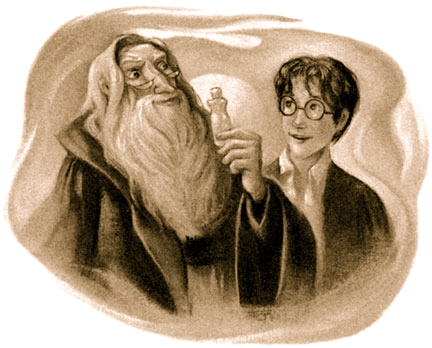
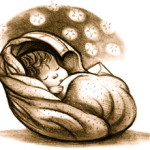
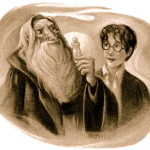
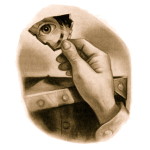
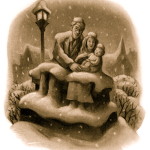
bex - July 29, 2013 @ 5:29 am
Chills.
I’m glad you finally came around :)
JoAnna - July 29, 2013 @ 12:36 pm
Oh, this makes me so happy/affirmed/excited. I had followed the exact same path and snobbish thought as you up until 3 weeks ago, when a similar dear friend (with impeccable literary taste) told we could never be “true” friends until I read Harry Potter. So I finally gave in. Having only finished the first 2 I again, felt similar to you. But having been assured by her, and now you, that they will greatly improve soon – I cannot wait to get through the 3rd book!
Erin - July 29, 2013 @ 12:48 pm
And I’m excited to see what your thoughts are at the end!